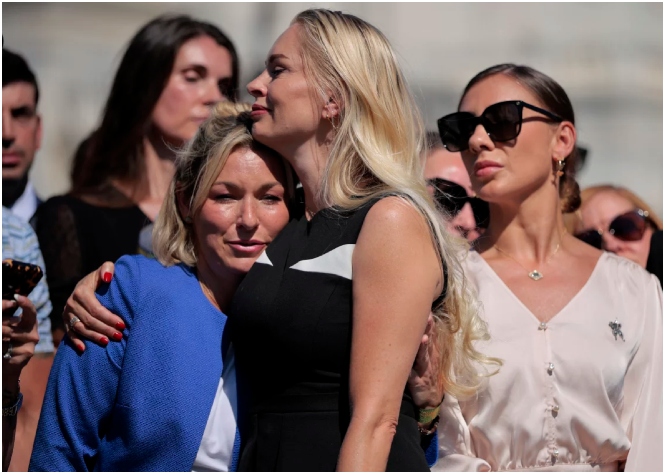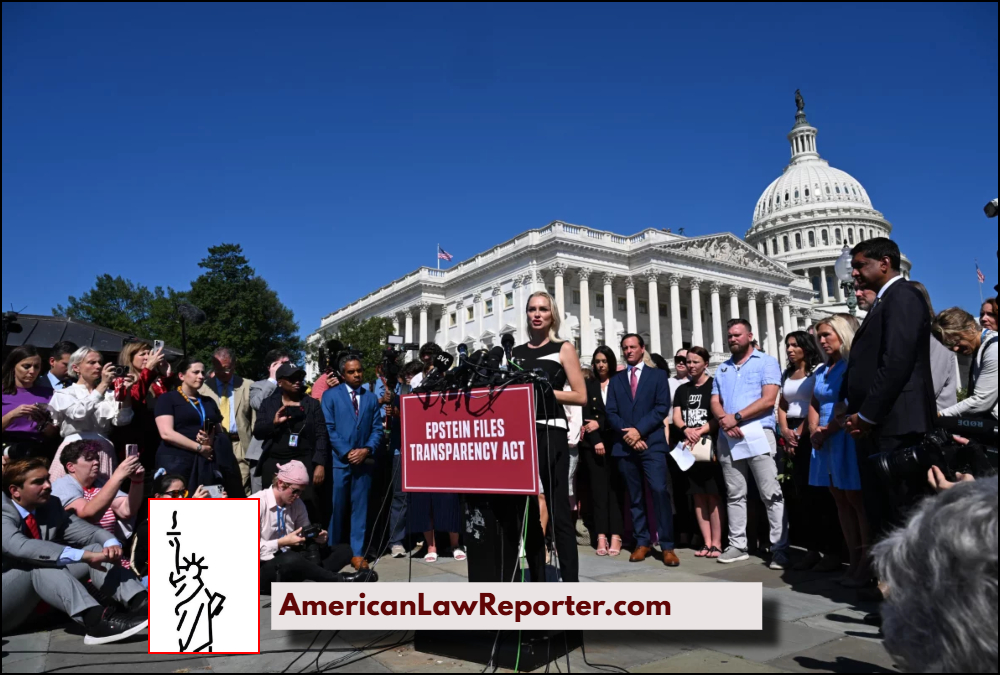Survivors of Jeffrey Epstein’s abuse stood on the steps of Capitol Hill on Wednesday, September 3, demanding transparency and warning that if the government fails to release the full trove of Epstein-related documents, they may release their own list of alleged sexual predators.
Ten women, including Marina Lacerda, Anouska De Georgiou, Lisa Philipps, and Teresa Helm, shared their testimonies alongside attorneys and a bipartisan group of lawmakers. They urged Congress to pass the Epstein Files Transparency Act, which seeks the complete publication of Justice Department records tied to Epstein and his accomplice Ghislaine Maxwell.
“Congress must choose: will you continue to protect predators, or will you finally protect survivors? Transparency is justice,” said survivor Lisa Philipps.
Survivors Detail Abuse
Marina Lacerda recalled being just 14 years old when she was lured to Epstein’s New York residence under the pretense of earning money. “It went from a dream job to the worst nightmare,” she said, describing years of abuse.
De Georgiou, who said she was abused by both Epstein and Maxwell for more than a decade, emphasized Maxwell’s complicity. “She was present, she was complicit, she was enabling,” she told reporters.
Teresa Helm, now the Survivor Services Coordinator at the National Center on Sexual Exploitation, described being trafficked and assaulted in 2002 at age 22. “The aftermath of trauma is a lifelong journey,” she said, calling for accountability that extends beyond Epstein and Maxwell.
The Push for Transparency

The press conference followed the release of more than 33,000 heavily redacted pages by the House Oversight Committee earlier in the week. Critics argue the documents add little new information, reinforcing survivors’ demands for the full, unredacted files.
Lawmakers Ro Khanna (D-CA) and Thomas Massie (R-KY) organized the event, underscoring bipartisan concern over transparency in the case. Survivors say the unreleased records may identify powerful figures who enabled or participated in Epstein’s crimes.
Political Roadblocks
Despite these calls, resistance at the highest levels of government remains. President Donald Trump dismissed the demand for more files as a “hoax” when asked about the matter in the Oval Office. Survivors, however, rejected the framing of the issue as partisan.
“This is not political warfare,” Helm said. “It is an American thing. We all need to come together.”
What Comes Next
The survivors’ threat to release their own list of alleged predators increases pressure on lawmakers and the Justice Department. Legal experts say that if survivors or attorneys hold credible evidence, its disclosure could fuel civil litigation, defamation disputes, and even new criminal prosecutions.
The debate surrounding the Epstein files underscores broader issues in U.S. law: how to balance privacy rights, prosecutorial discretion, and the public’s right to know—especially in cases involving systemic abuse, elite privilege, and government accountability.

